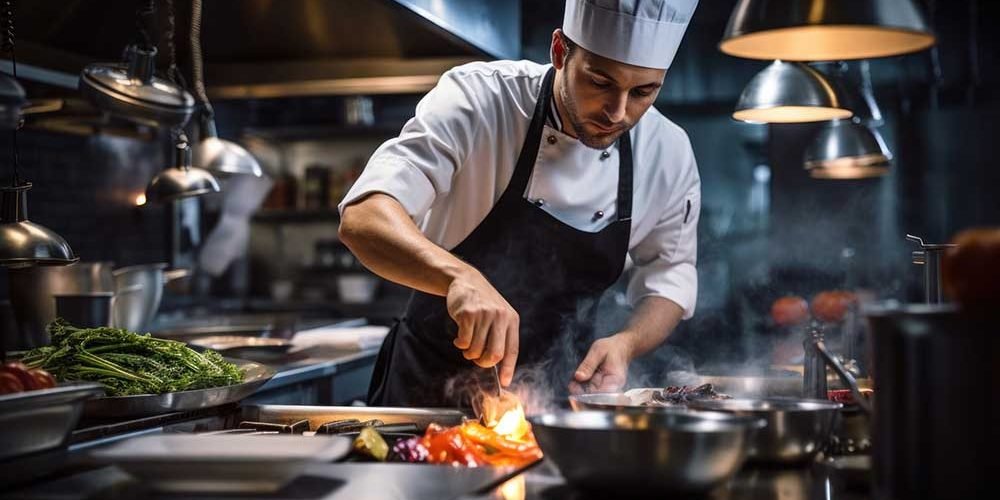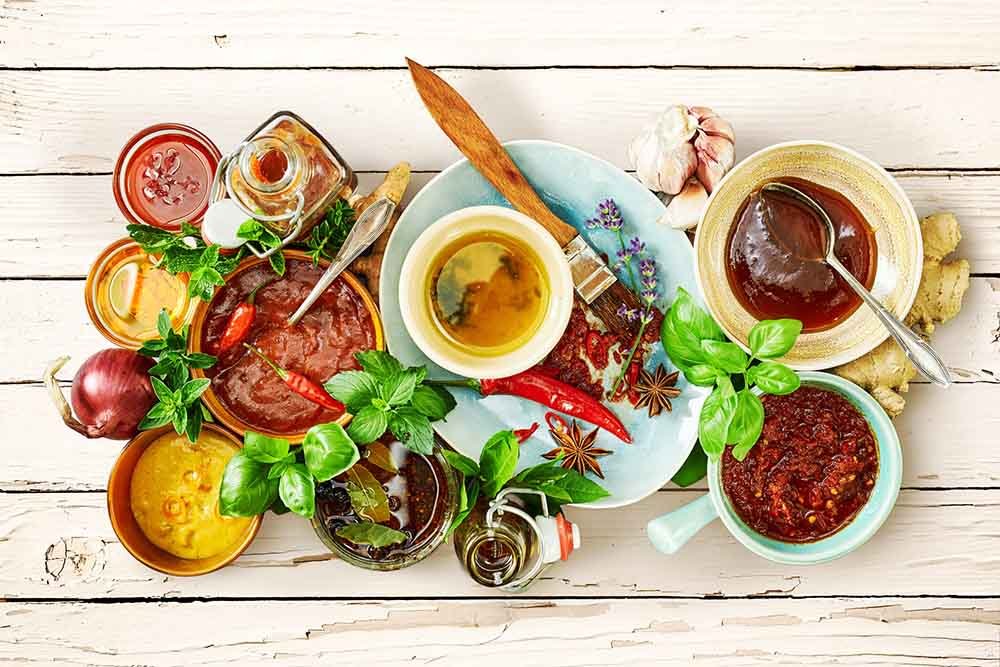Marinating is more than just a flavor-enhancing step in the culinary process. It’s an art demanding precision and knowledge.
In commercial kitchens, the stakes are particularly high. Proper handling of marinades can ensure the best taste and safety for dishes. Yet, many important details get overlooked when storing and using these mixtures.
This article highlights critical aspects that culinary professionals should consider to maximize the benefits of marinades without sacrificing safety or quality.
Table of Contents
The Role Of Marinades In Commercial Kitchens
Marinades hold significant importance in professional kitchens, offering benefits beyond taste.
- Enhancing Flavors: Marinades are a blend of ingredients designed to impart depth and character to food. They introduce a symphony of flavors that can make a dish stand out.
- Tenderizing Proteins: Acidic components in marinades, such as vinegar, wine, or citrus juices, do more than add flavor. They also modify the surface proteins in meats, creating a more tender texture.
- Preserving And Ensuring Safety: While the primary purpose of marinating has historically been preservation, today’s marinades add an extra layer of protection against spoilage. Ingredients like salt and acid create an environment less hospitable to harmful bacteria.
- Creating Signature Dishes: Many restaurants aim for a distinctive touch in their offerings. By choosing to partner with House of Legumes or other trusted suppliers, they gain access to a range of marinades and sauces that enhance their culinary creations. These unique blends can transform an ordinary dish into something that patrons come back for time and again.
Understanding the versatile role of marinades helps chefs use them effectively, ensuring exceptional flavor and safety in every dish.
Storing Marinades: Best Practices
Proper storage is crucial in a commercial kitchen setting. Here’s how to master it:
- Choose The Right Containers: Use non-reactive containers, like glass or food-grade plastic. These materials won’t react with the acidic ingredients in the marinade, ensuring that the quality of the mixture remains the same.
- Refrigerate Promptly: Always store marinades in the fridge, especially if they contain perishable items like dairy or fresh herbs. This keeps ingredients fresh and prevents bacterial growth.
- Label And Date Containers: With the hustle and bustle of a kitchen, it’s easy to lose track. Labeling containers with content details and dates ensures everyone knows what’s inside and when it was made. This helps with inventory control and food safety.
- Prevent Cross-Contamination: Always be cautious with marinades that have touched raw meat or fish. Separate these from sauces intended for ready-to-eat foods, and store raw and cooked items distinctly to eliminate risks of contamination.
By following these best practices, you’ll ensure that marinades retain their quality, enhance dishes, and maintain kitchen safety standards.
Using Marinades Efficiently And Safely
Effectively using marinades involves more than immersing food in them. Here are some guidelines:
- Determine Marination Time: Not all proteins require the same marination time. While fish and seafood often need just 30 minutes to an hour, tougher cuts of meat might benefit from several hours or even overnight marination.
- Treat Used Marinades: If a marinade has been in contact with raw food, don’t use it on cooked dishes without proper treatment. To reuse it, bring the marinade to a boil for several minutes to kill potential harmful bacteria. However, when in doubt, it’s always safer to discard.
- Ensure Uniform Coating: For the best results, make sure the marinade covers the food entirely. Turning the food occasionally or using zip-top bags can help distribute the marinade more uniformly.
- Avoid Over-Marinating: While it might seem like longer is better, over-marinating can lead to mushy textures, especially in delicate proteins like fish. Stick to recommended timeframes for optimal flavor and texture.
By adhering to these guidelines, chefs can optimize the flavor while ensuring safety.
Common Mistakes To Avoid
Working with marinades might seem straightforward, but mistakes can happen. Here’s what to keep an eye on:
- Skipping The Seal: Using just any cover might not suffice. Opt for vacuum-sealing bags or tight-fitting containers to prevent air exposure and maintain marinade and food quality.
- Not Mixing Thoroughly: Ensure every ingredient in the marinade is well-blended for consistent flavor.
- Ignoring Marinade Ratios: While creativity is encouraged, maintaining a balance in ingredients, especially between acids and oils, is essential. Too much acid, for instance, can adversely affect certain foods, like seafood.
- Overlooking Fresh Ingredients: While dried herbs and spices are valuable, fresh ingredients can add a burst of flavor.
Being aware of these common pitfalls will help in achieving the desired taste and texture in your dishes, ensuring the effort put into marinating pays off.
Wrapping Up
Marinades, when handled with care and knowledge, can be the distinguishing factor in a dish, elevating it from good to unforgettable. By understanding their role, storing them correctly, using them efficiently, and avoiding common pitfalls, commercial kitchens can ensure they’re maximizing the potential of these flavorful mixtures.
After all, it’s about more than taste; it’s about crafting memorable dining experiences with safety in focus.






